
Politics
15:03, 12-Sep-2017
Can anything stop Angela Merkel?
By Nadeem Gill
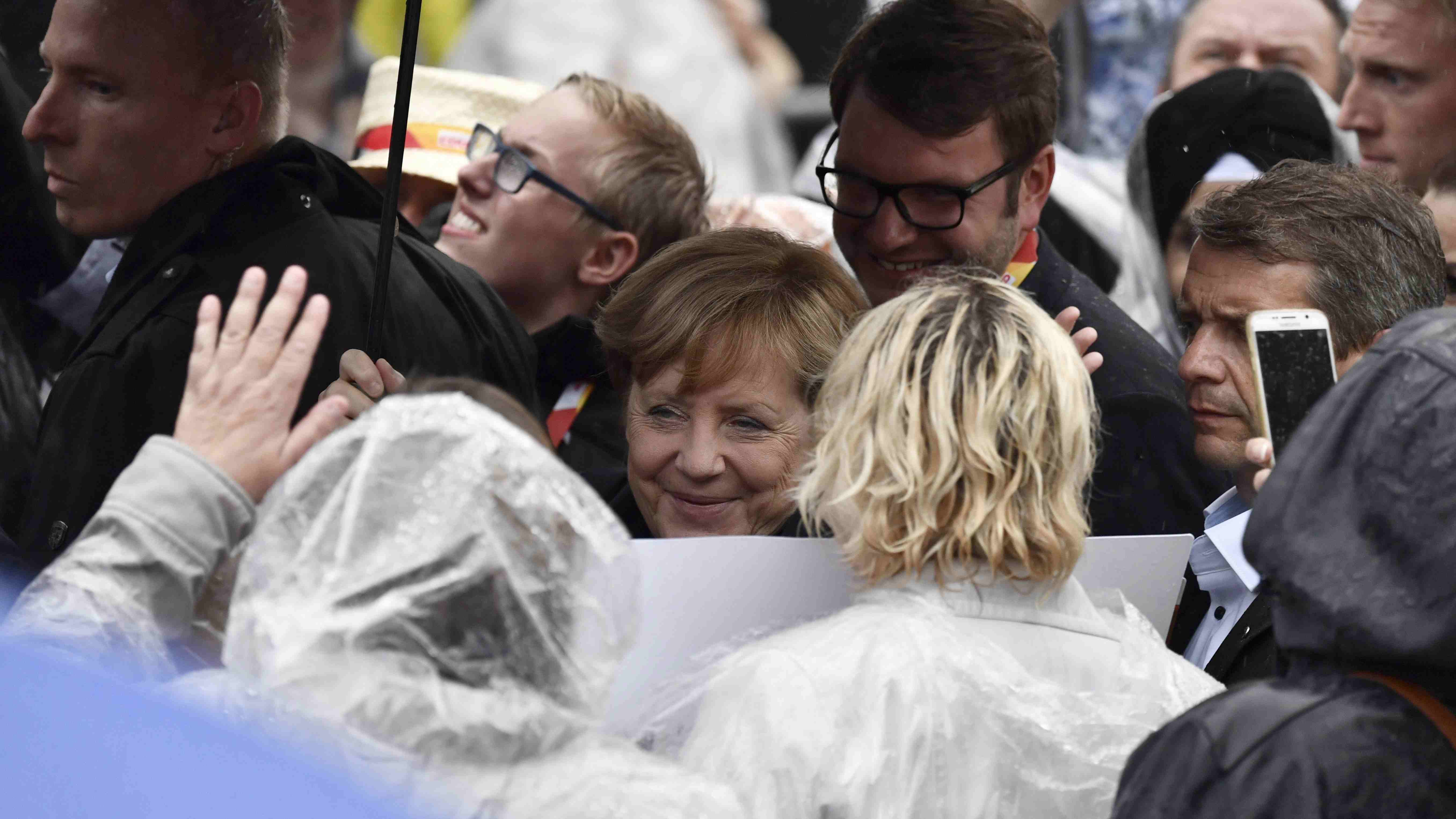
German Chancellor Angela Merkel is "most likely" to secure a fourth term as her main challenger Martin Schulz appears to have lost momentum in the run-up to the federal elections in Germany.
Blamed for worsening the European migrant crisis with her “open door” policy and for her approach to the Euro crisis though, Merkel is still the "eternal chancellor" for many Germans, who would decide on September 24 whether Merkel will lead the government for another term.
She is already the longest-serving leader of any major Western democracy and has been leading the government for the last 12 years. With a possible new term, she could complete 16 years, equal to the former Chancellor Helmut Kohl, who led the government from 1982 to 1998.
Merkel power
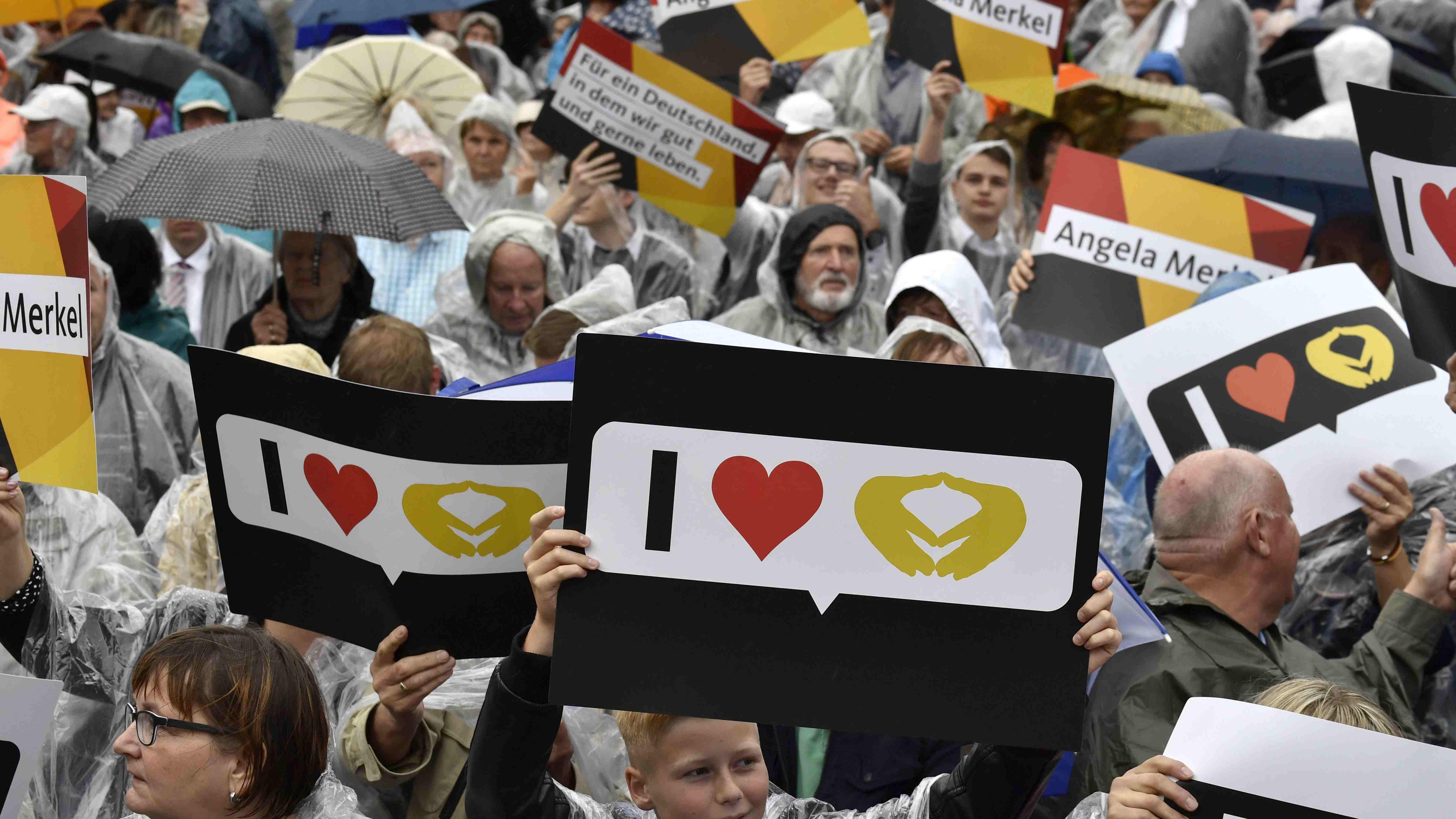
Angela Merkel is the daughter of a priest and was raised in East Germany. /AFP Photo
Angela Merkel is the daughter of a priest and was raised in East Germany. /AFP Photo
"She is most likely to win the elections," Ludger Kühnhardt, German political science professor and director of the Center for European Integration Studies (ZEI), told CGTN.
"The question is who is going to form a coalition government under Chancellor Merkel", he said, adding that the voters would answer this on September 24.
The The Christian Democratic Union (CDU) led by Merkel, formed a coalition government with the center-left Social Democratic Party (SPD) after the last elections. Many political commentators believe the two parties may again collaborate.
"There is a theoretical option, and it should be in any democracy", said Kühnhardt.
Merkel’s main challenger Martin Schulz, the former president of the European Parliament and chairman of the Social Democratic Party (SPD), who initially created hype but now having trouble sustaining the momentum.
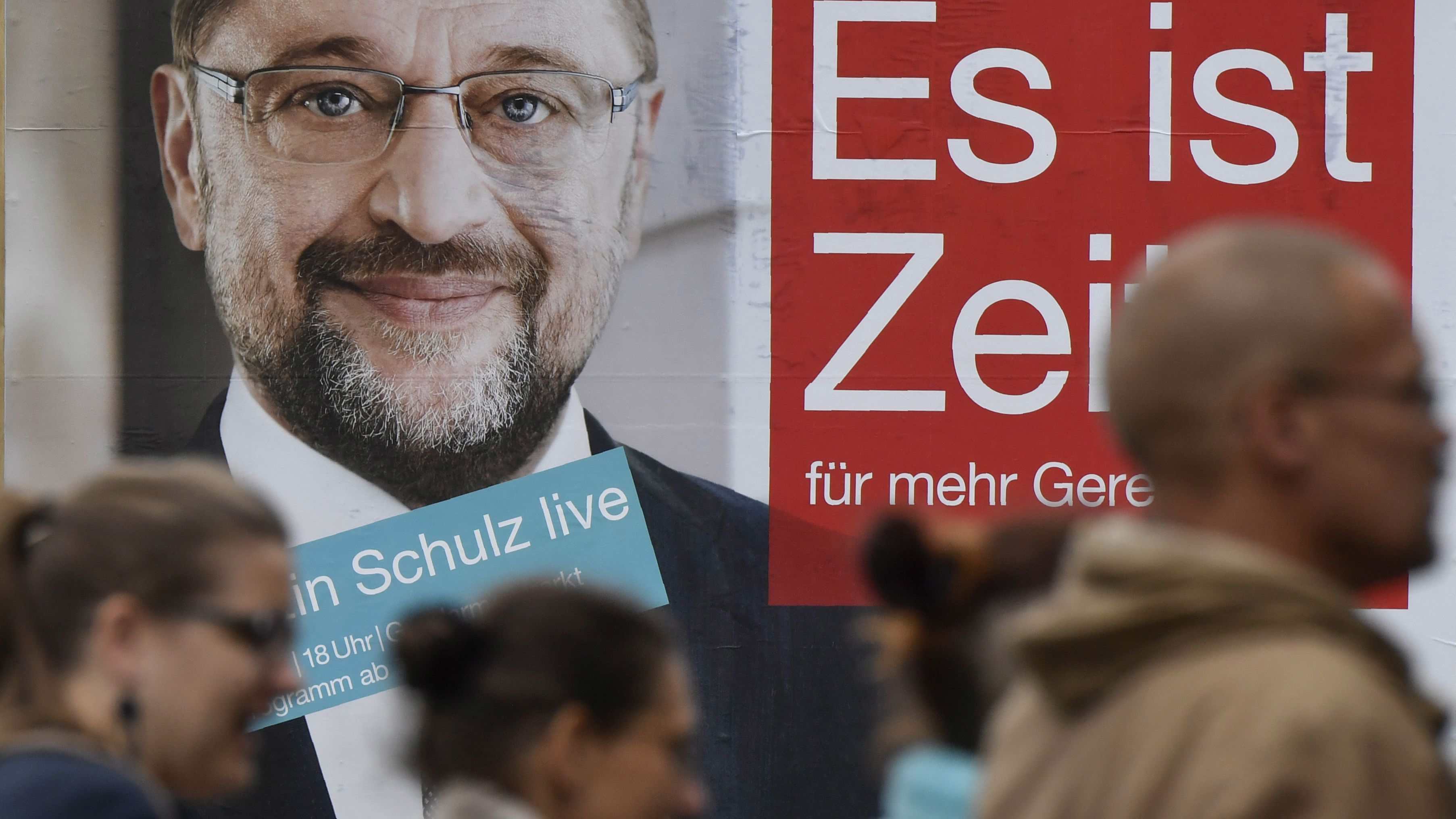
Martin Schulz, the head of the Social Democratic Party (SPD) and a former European Parliament president, faces an uphill battle to unseat Merkel. /AFP Photo
Martin Schulz, the head of the Social Democratic Party (SPD) and a former European Parliament president, faces an uphill battle to unseat Merkel. /AFP Photo
With Merkel being in office for so many years, Kühnhardt noted, many people have a desire for a change and "the new candidates, especially the one who comes from the outside, attract a lot of attention."
Far-right failing
Motivated by US President Donald Trump, the right, in all its forms, has been on the march in previous European elections - in Austria, the Netherlands, France and now, the far-right Alternative for Germany (AfD) is active in the run-up to the German federal elections.
Frauke Petry, head of the party, stirred up a controversy last year by saying that police should "if necessary" shoot at migrants attempting to enter the country illegally.
"I don't want this either. But the use of armed force is there as a last resort," she said.
Her comments drew condemnation from left-wing parties and by the German police union.
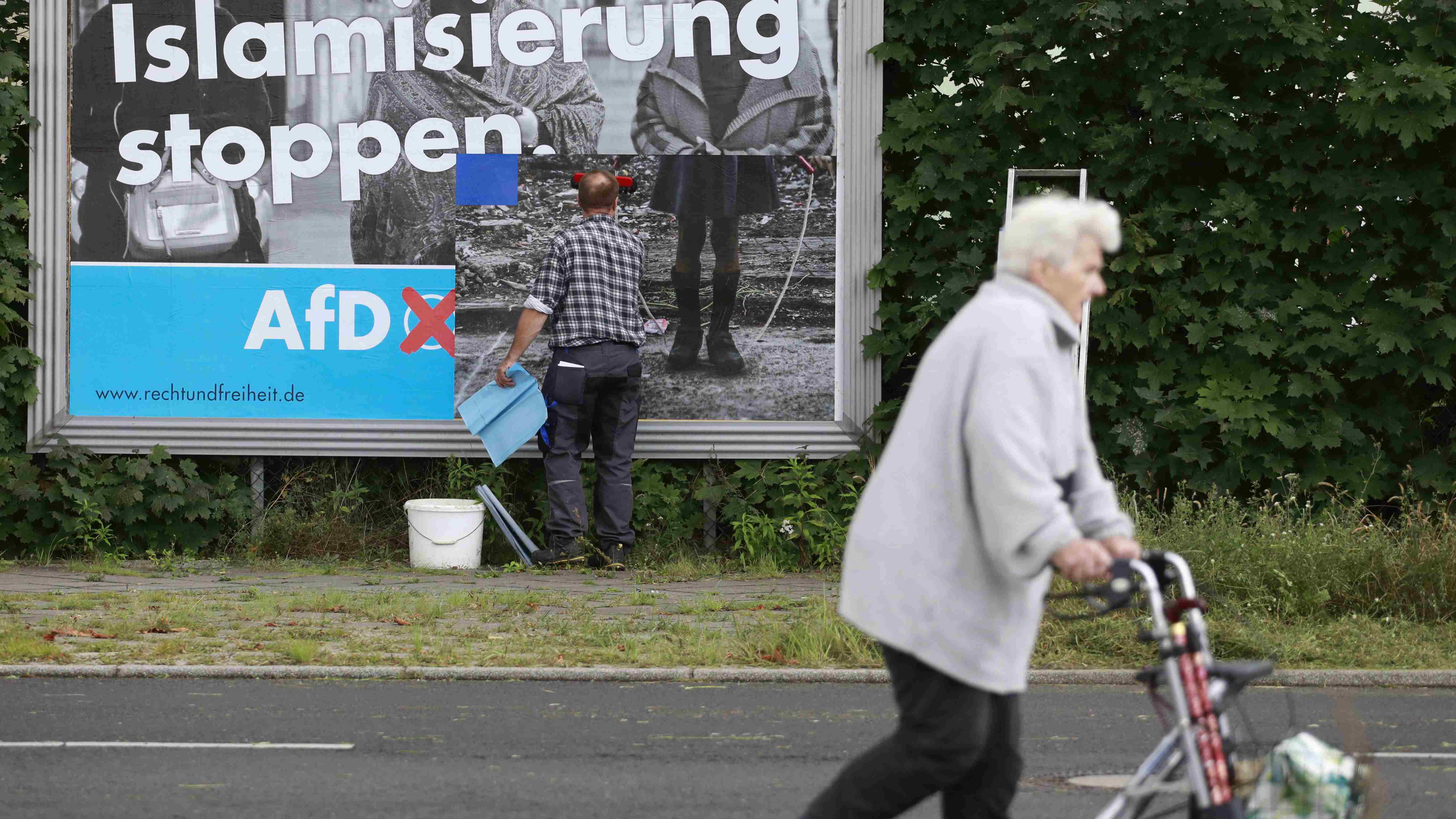
Many experts say the AfD could damage the SPD. /AFP Photo
Many experts say the AfD could damage the SPD. /AFP Photo
Observers will keenly watch the Alternative for Germany's (AfD) results. Many experts initially thought the party might take votes from the CDU, some are now saying the AfD could damage the SPD.
German Foreign Minister Sigmar Gabriel has warned against voting AfD. Voting for the AfD party could bring Nazis back in the parliament, he told local media on Monday.
German voters were considering voting AfD as they felt their concerns about migration, security and jobs were not being addressed, he said.
Professor Kühnhardt linked the rise of the far-right movement to the identity issue.
"The question of the identity of the citizens gradually came back because of the increasing Europeanization, increasing integration in Europe, and it has been fundamentally coming back as a consequence of this enormous increase in migration, especially illegal migration of so many refugees," he stated.
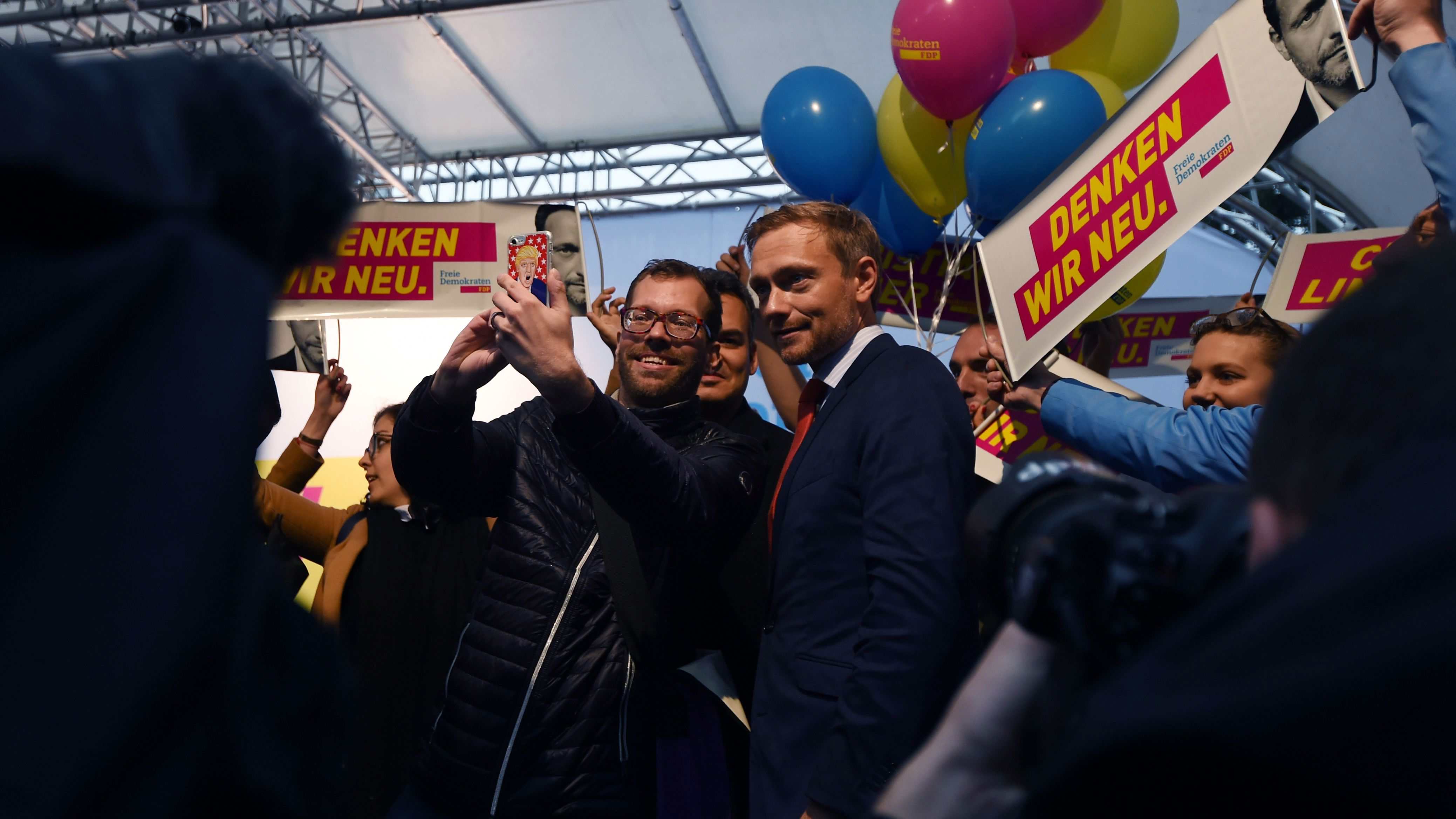
Several parties are on the ballot. /AFP Photo
Several parties are on the ballot. /AFP Photo
"All this have triggered concern about long term identity of European societies and has produced such parties across the board."
"But so far we have, except for Brexit in the UK, not seen any of them succeeding.
"I think it is a serious reflection of a deep reconfiguration of identity discourses in Europe, but it is not necessarily undermining the overall … main patterns of EU integration calendars and agendas."
The German effect
The aging nation is heading to the polls at a time when the region is arguably going through one of the worst phases of its history, following crises ranging from economic to migration and Brexit.
French President Emmanuel Macron warned last week that Europe would break without a radical overhaul of its governance.
Asked how are German elections going to affect Europe, Professor Kühnhardt said the question is related to the stability and Europe "has been stabilizing gradually, step by step over the last two three years."
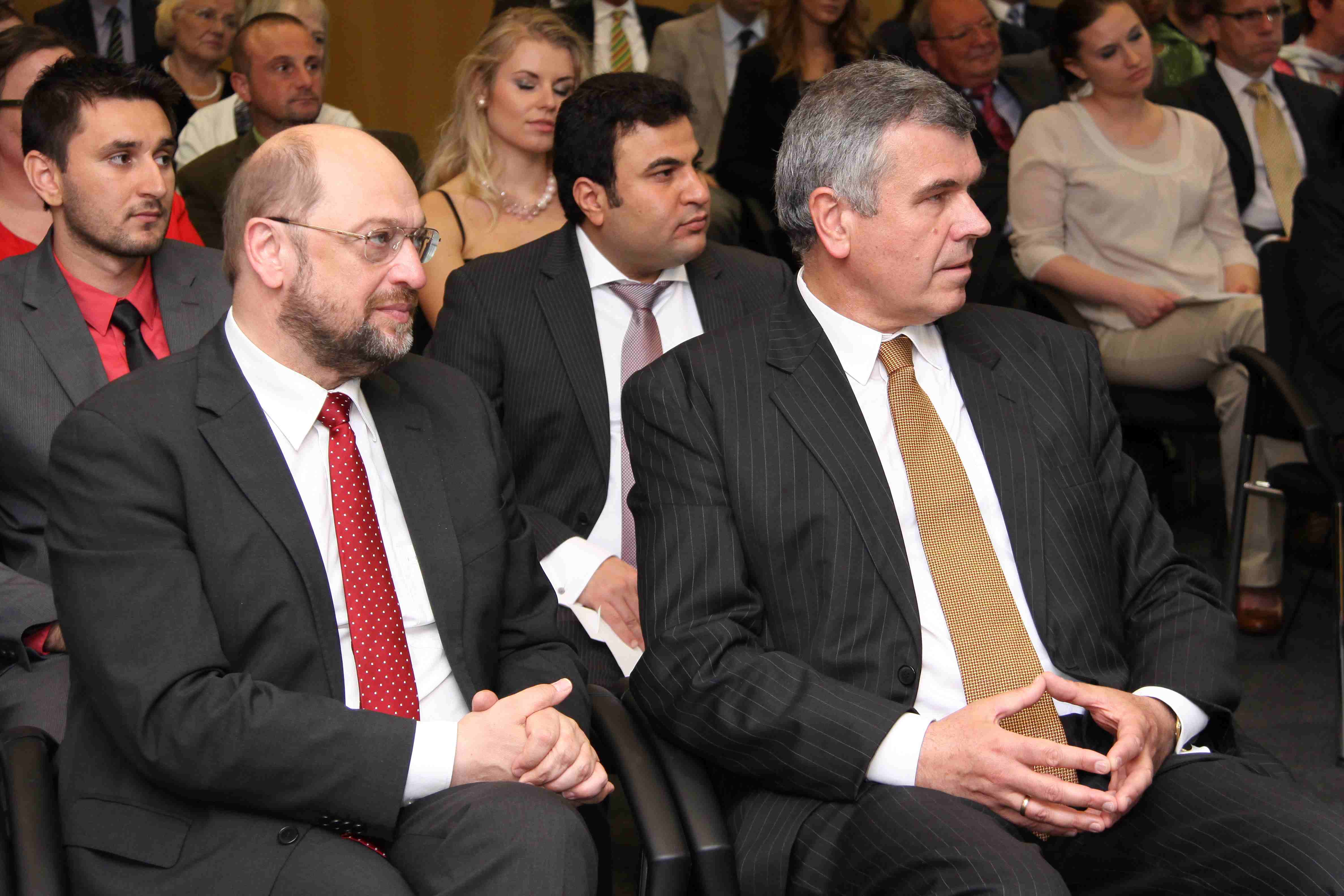
SPD leader Martin Schulz (L) and Professor Ludger Kühnhardt (R) /Photo Nadeem Gill
SPD leader Martin Schulz (L) and Professor Ludger Kühnhardt (R) /Photo Nadeem Gill
The Euro has survived the crisis, he said, the real challenge ahead for the European Union is to consolidate this stabilization.
Citizens across the EU expect the new French President Emmanuel Macron and the incumbent German Chancellor to lead this relaunching of the European Union with the ambition to complete the European monetary currency union, completing banking union and the likes, Professor Kühnhardt added.
Migration crisis
Europe saw one of the most significant influxes of migrants and refugees in its history in 2015.
A large number of people have fled Africa and the Middle East as result of terror and civil wars. They risked their lives while trying to reach Europe hoping for a better life.
Back in 2015, more than a million people landed at the European coasts as compared to 280,000 a year before. The scale of the crisis continued in 2016.
It remains a hot election topic. Merkel, in an interview with German newspaper Frankfurter Allgemeine Zeitung, said that the EU introduced free movement of people without stricter border checks and it was a naive idea
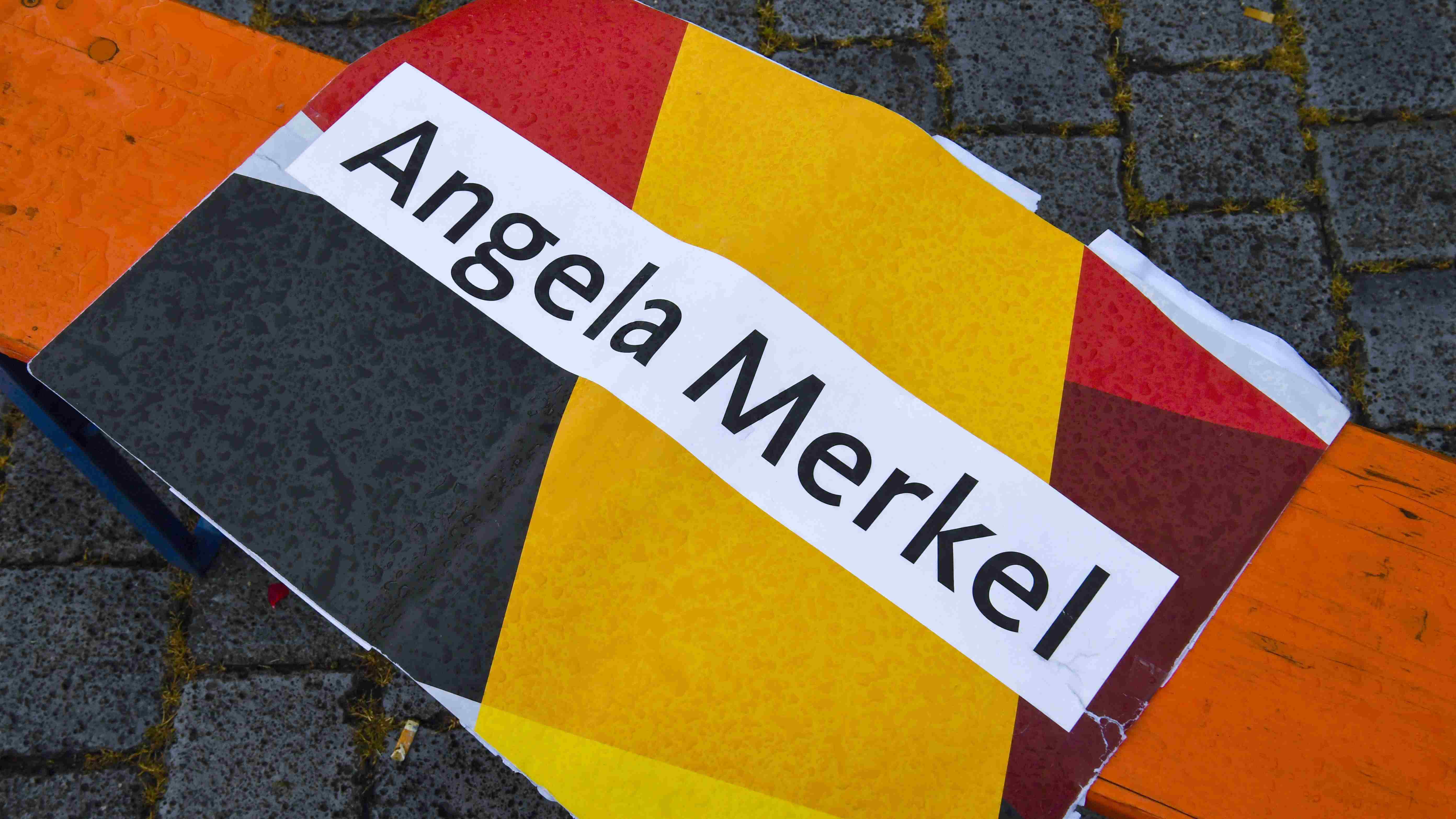
Refugees cheered Merkel as savior, for some she is "austerity queen" and some call her the new "leader of the free world." /AFP Photo
Refugees cheered Merkel as savior, for some she is "austerity queen" and some call her the new "leader of the free world." /AFP Photo
"It was too naive at the time to create a European area of freedom of movement without effectively controlling our external European borders."
She, however, said that the EU had made considerable progress in protecting its external borders".
The refugee crisis could not only be fixed by Europe, Professor Kühnhardt said, adding that this is a global crisis that requires an international partnership.

SITEMAP
Copyright © 2018 CGTN. Beijing ICP prepared NO.16065310-3
Copyright © 2018 CGTN. Beijing ICP prepared NO.16065310-3